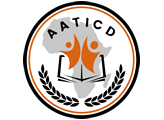Why Attend
The global oil and gas industry is under sweeping changes due to international pricing competition and with the dynamics of the industry changing, with aging asset infrastructure and the need to decommission equipment in a safe and environmentally friendly way. However as well as aging infrastructure, there is also an aging workforce which is leaving the industry and taking valuable knowledge and expertise with it. With the industry in need of a new workforce to take it strongly in to the future, this clear practical and exciting course gives you the foundation knowledge to help you on your oil and gas industry career.
Course Methodology
The material used in the training course will be based on exercises as well as regional and international case studies. Participants will frequently work in pairs with one another as well as in larger teams.
Course Objectives
By the end of the course, participants will be able to:
- Recall the structure and lifecycle of the oil and gas industry, and understand how the industry functions from upstream, through midstream to downstream
- Recognize how oil is formed, found, recovered/extracted, processed, transported and sold
- Describe terminologies and functions, including installations, production facilities and onshore/offshore operations and support requirements
- Explain oil and gas operations and the associated challenges, as well as the various systems monitoring and controlling equipment
- Examine why the industry is classified as a high risk safety critical industry
Target Audience
Anyone wishing to gain an overview or basic understanding of oil and gas, the industry or its operations. This includes, but is not limited to, anyone new to the oil and gas industry, contractors working with clients in the industry, or anyone within a non-technical role in the industry who is seeking a greater understanding of operations.
Target Competencies
- Principles of Oil Production
- Onshore/Offshore Operations
- Oil and Gas Operations
- Oil and Gas Safety
Location:
South AfricaTraining Dates:
Each course starts every Monday of each week. Please book your training on a date that is a Monday.Course Duration:
Unit Standard:
NQF Level:
Number of Credits:
Course Fees
Note: Please fill in the online application form on the left or bottom if this page to receive a quotation with detailed pricing from AATICD.How to Apply:
To Apply Simply Fill in the Online Enquiries / Applications form on the Right Sidebar or Bottom of this website https://www.aaticd.co.zaNB:
When filling the online application form; please take note of your desired Training Month, Duration in Weeks and Training Session. This will give us the exact dates you will be attending your classes.Also note that Tuition Fees must be paid upfront on or before training start date. This is to ensure that all resources are made availabe for you before you start. You will not be allowed into training if fees are not paid and verified.
Also note that Tuition Fees Cancellations must be made 14 business working days before the starting date of training. This will allow us to do a 50% refund of the total amount paid. If cancellations are made thereafter note that no refund will be made to delegates.
Tuition Fees include teas and lunch as well as either a laptop or tablet which a delegate will take home free of charge.
Tuition Fee DOES NOT include Accommodation, Dinners and other Extra Curricular Activities or Incidentals. Delegates are expected to fund this on their own. AATICD will not be held accountable for any incidents to delegates.
In-House Trainings are also available for 3 or more delegates for any duration. Please consult with our Administration for such In-House training bookings.
Course Outline
- Introduction to oil and gas and the industry
- History of the industry
- Scope of onshore operations
- Scope of offshore operations
- Global market outlook: energy requirements and statistics
- Characteristics of oil and gas
- Characteristics of rock
- Origin of oil
- Gas migration
- Accumulation of oil and gas
- Traps
- Upstream production and equipment
- Production processes
- Onshore
- Offshore
- Equipment requirements and uses
- Onshore
- Offshore
- Production processes
- Risks and upstream exploration activities
- Health and safety
- Security
- Quality management
- Environmental management
- Risk management
- Exploration surveys
- Obtaining drilling rights
- Oil and gas drilling
- Drilling rigs
- Bottom-supported units
- Floating units
- Land based units
- Drilling a well
- Bits and drilling fluid
- Circulating system
- Rotating systems
- Power system
- Hoisting system
- Drilling personnel
- Selecting a rig
- Drilling from bottom-supported units
- Drilling from floating units
- Formation valuation
- Well abandonment
- Completion
- Drilling platforms and land based units
- Mobile offshore drilling units
- Directional and horizontal drilling
- Well completion
- Drilling rigs
- Midstream, downstream and decommissioning
- Processing requirements
- Storage and its importance
- Fuel transportation
- Refinery
- Unconventional explanations
- Decommissioning




